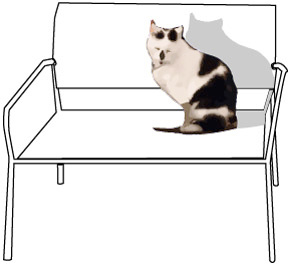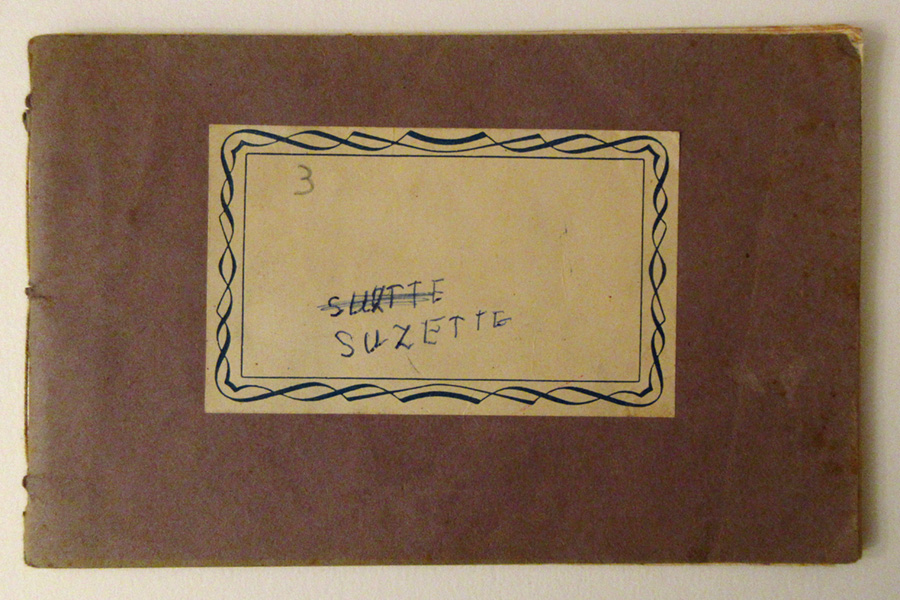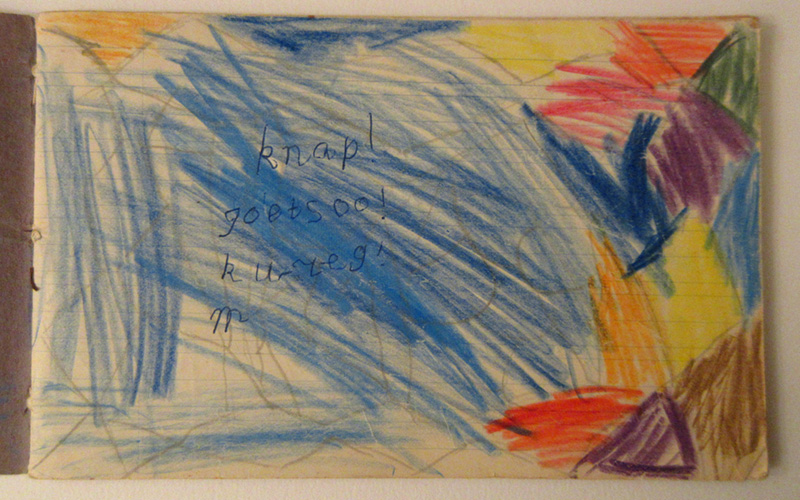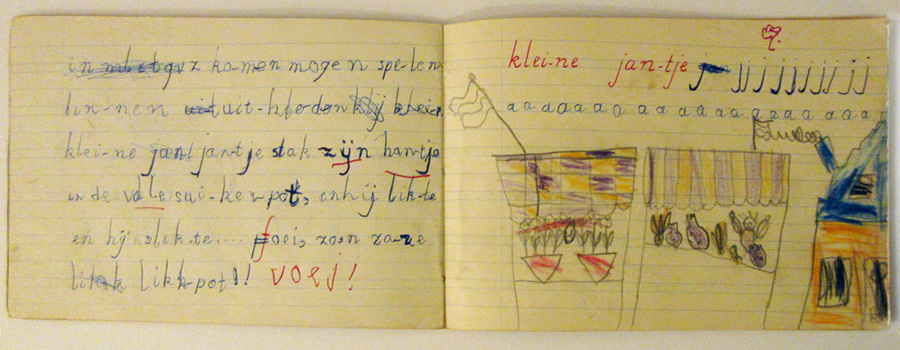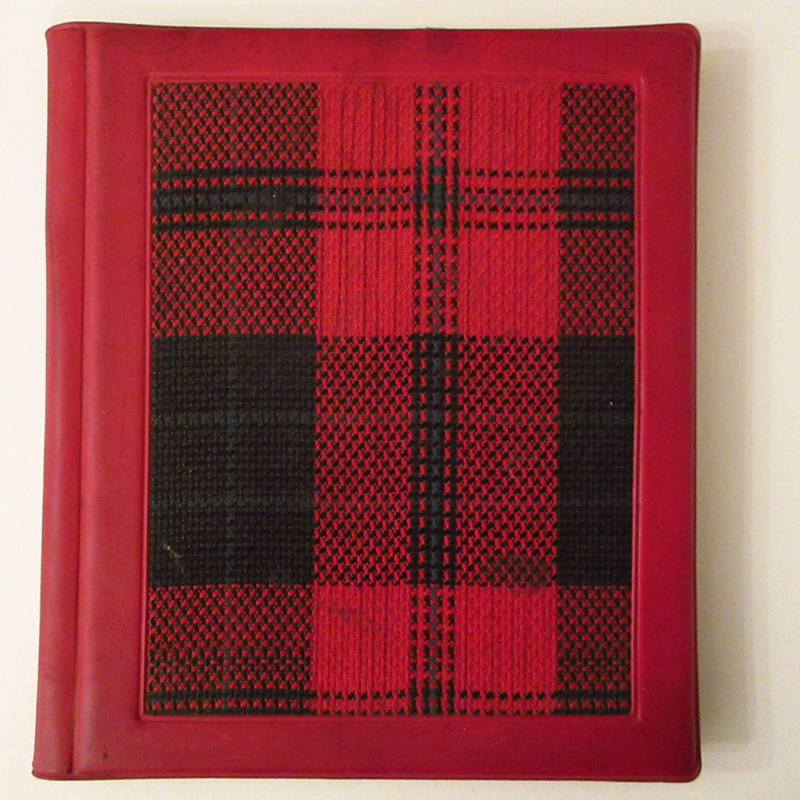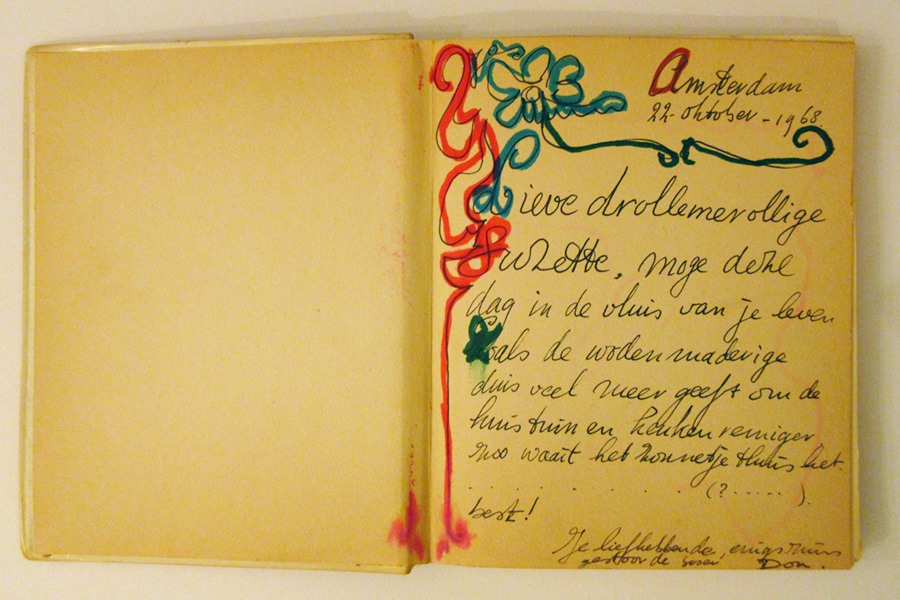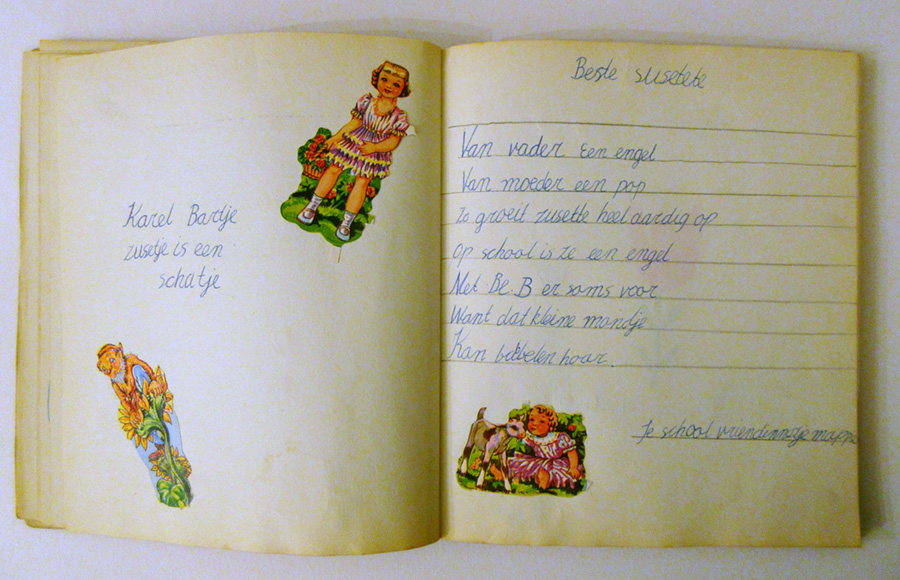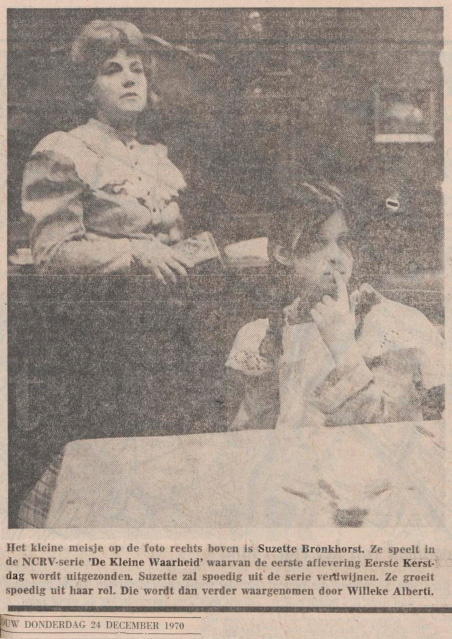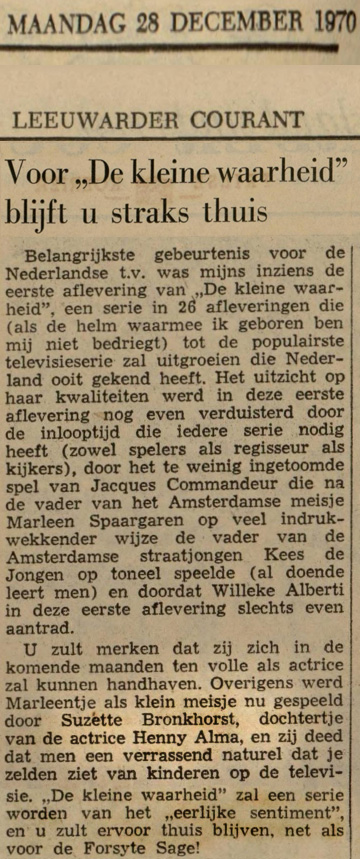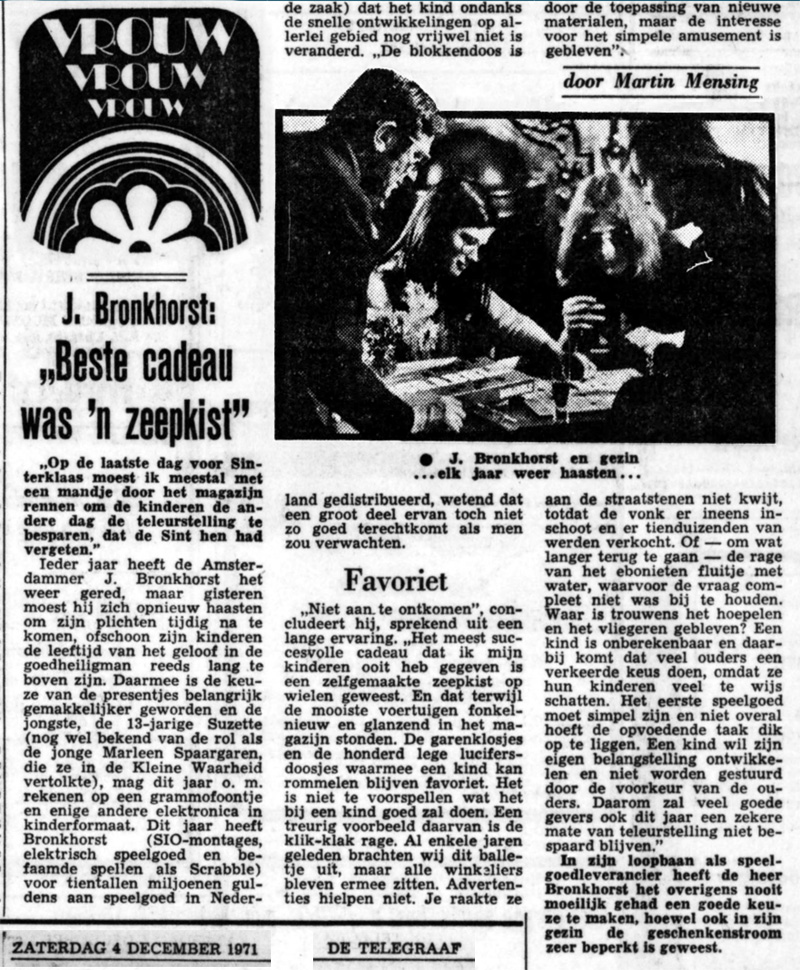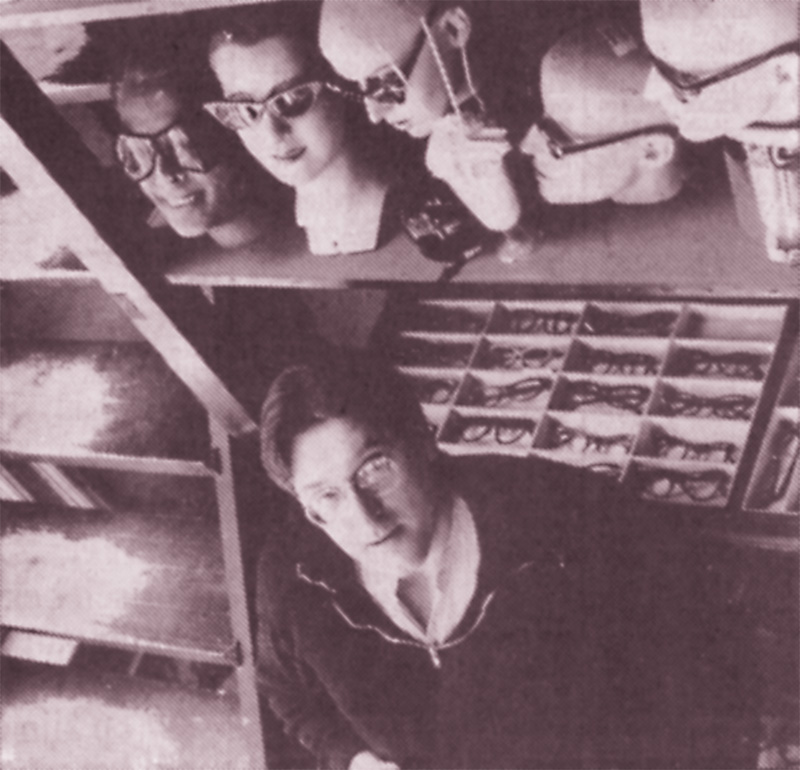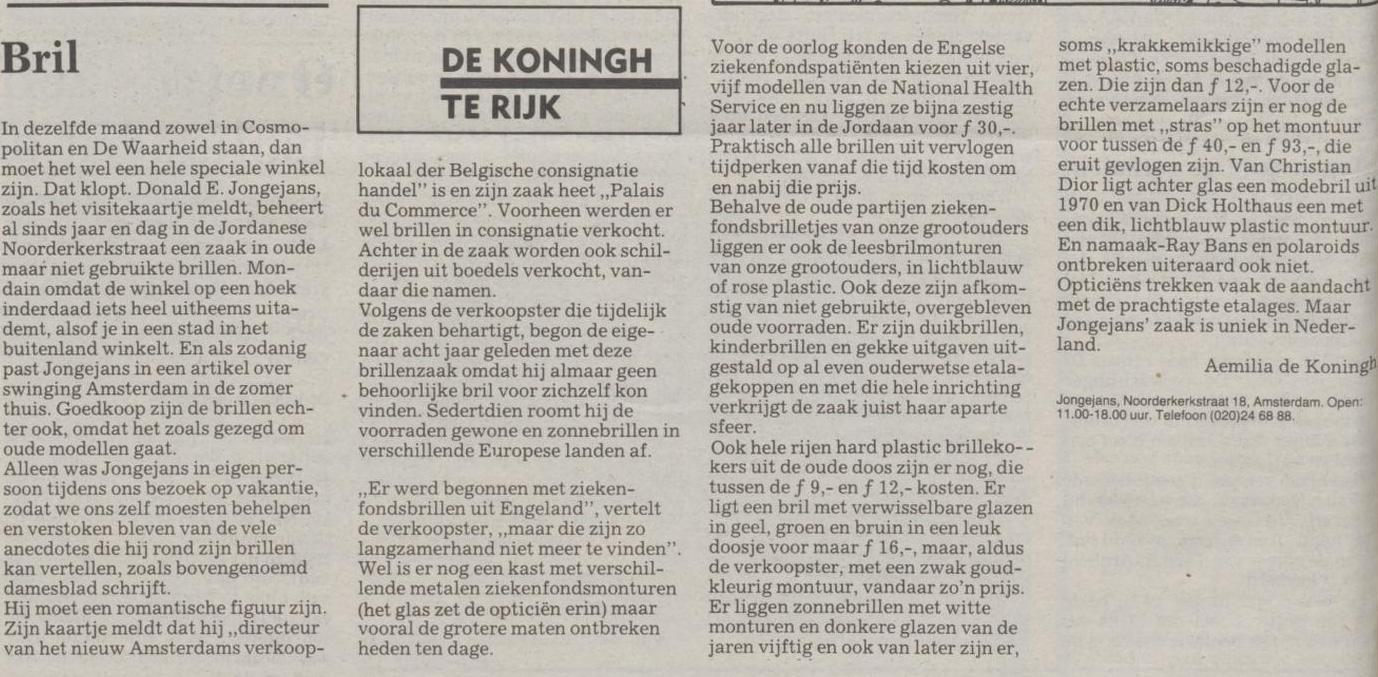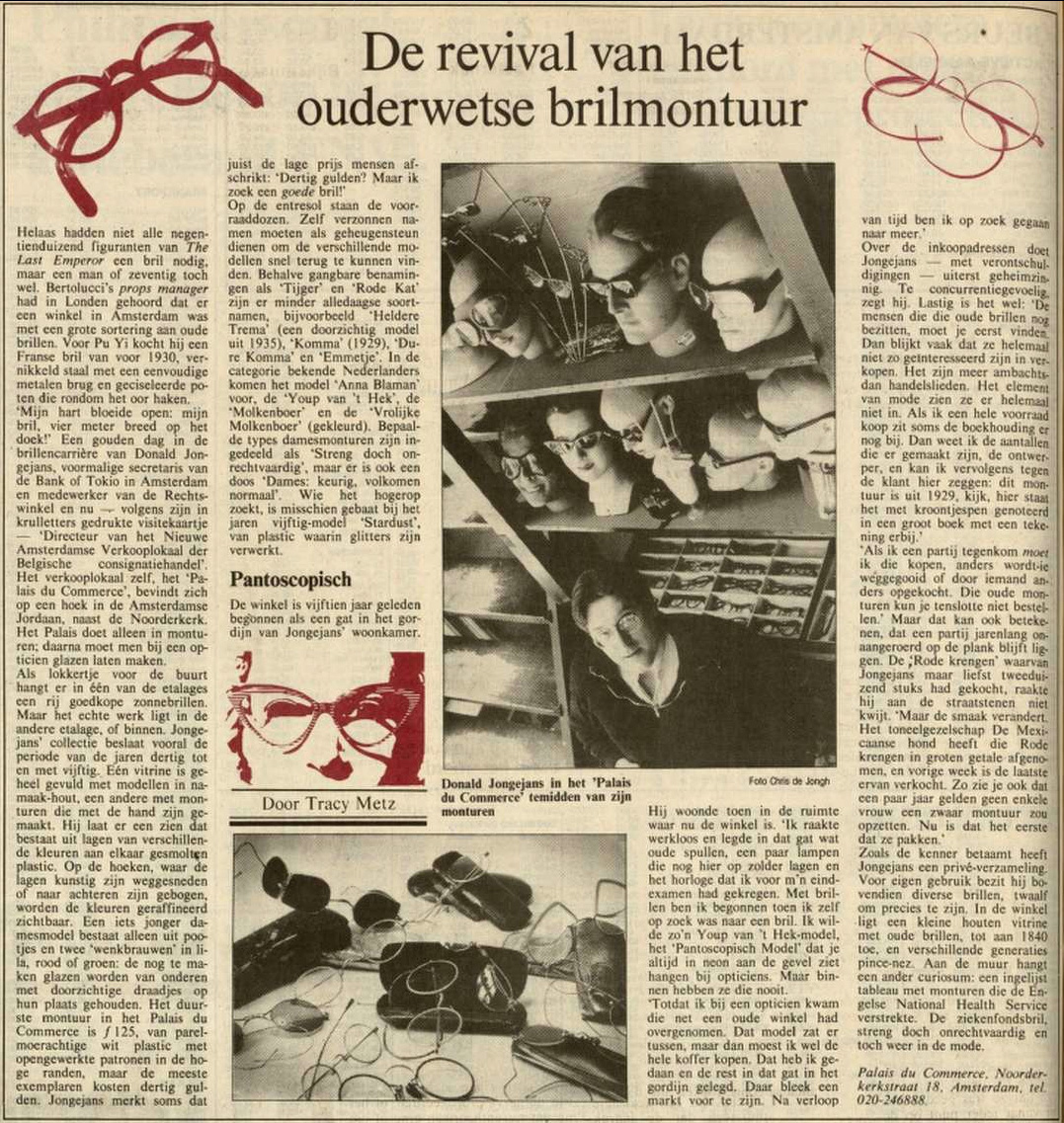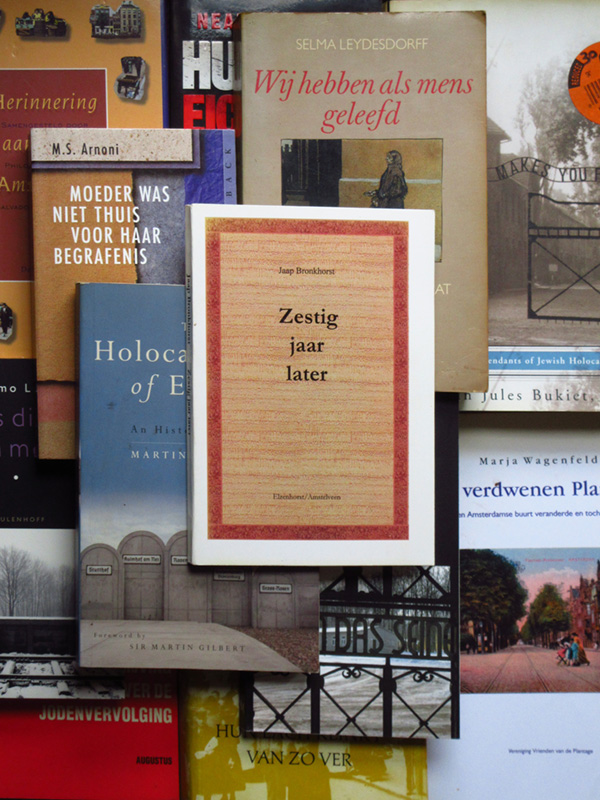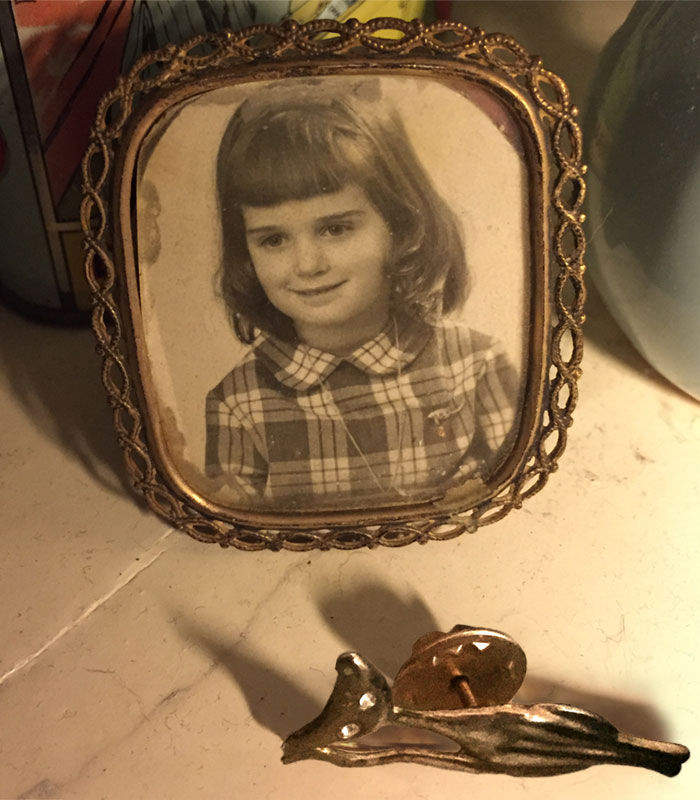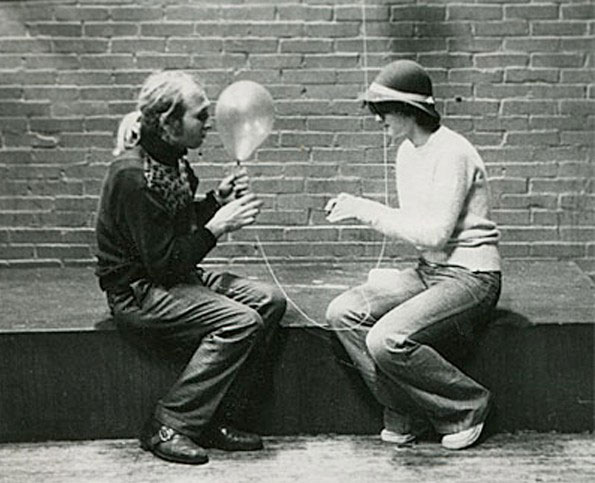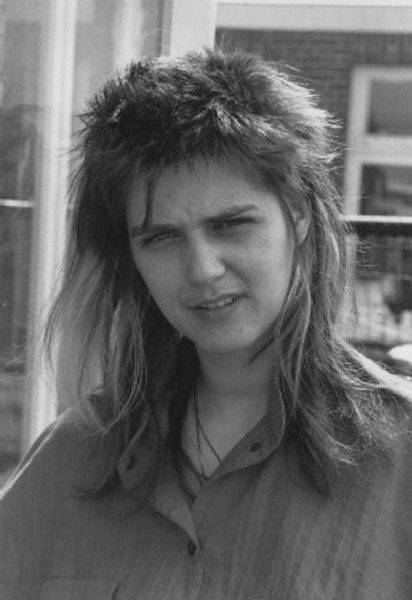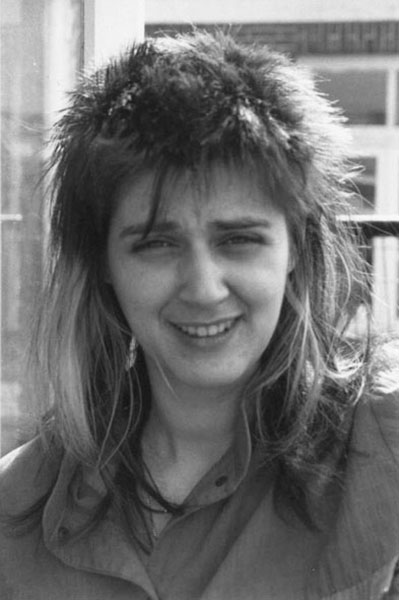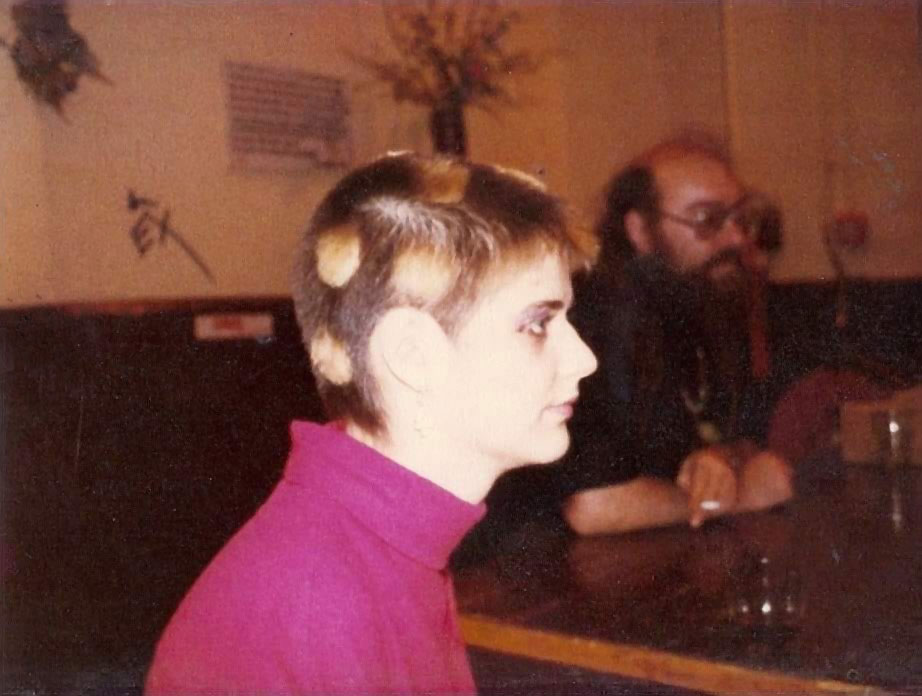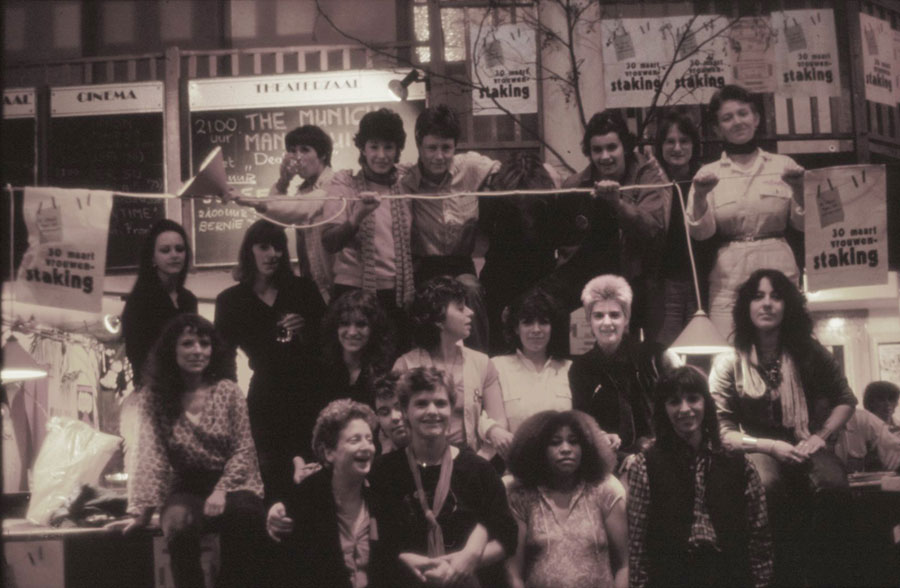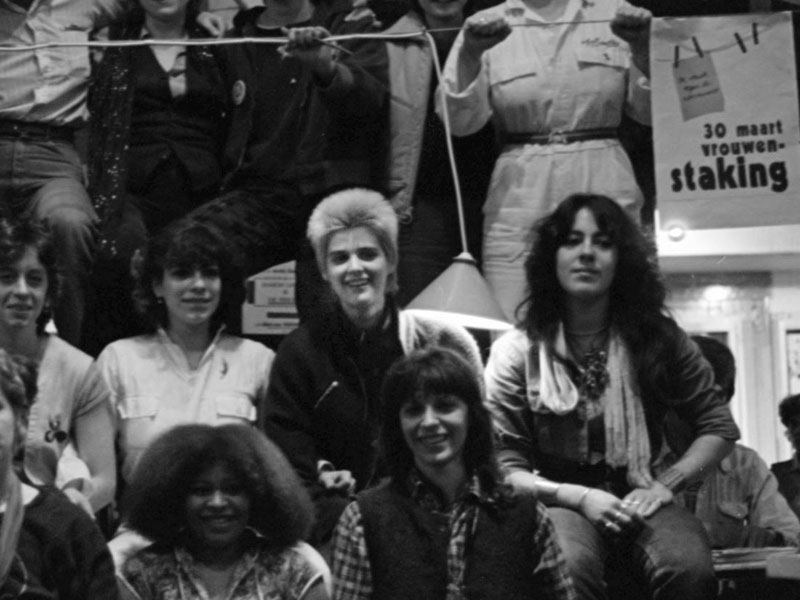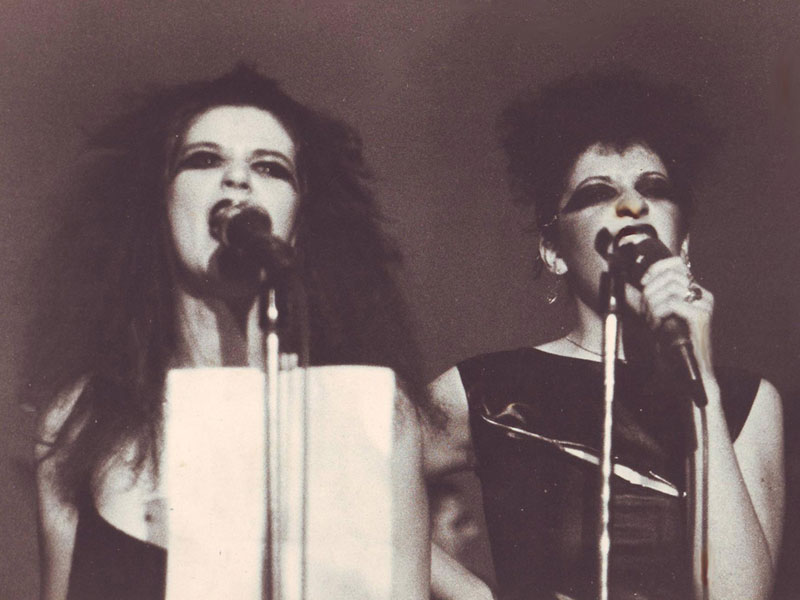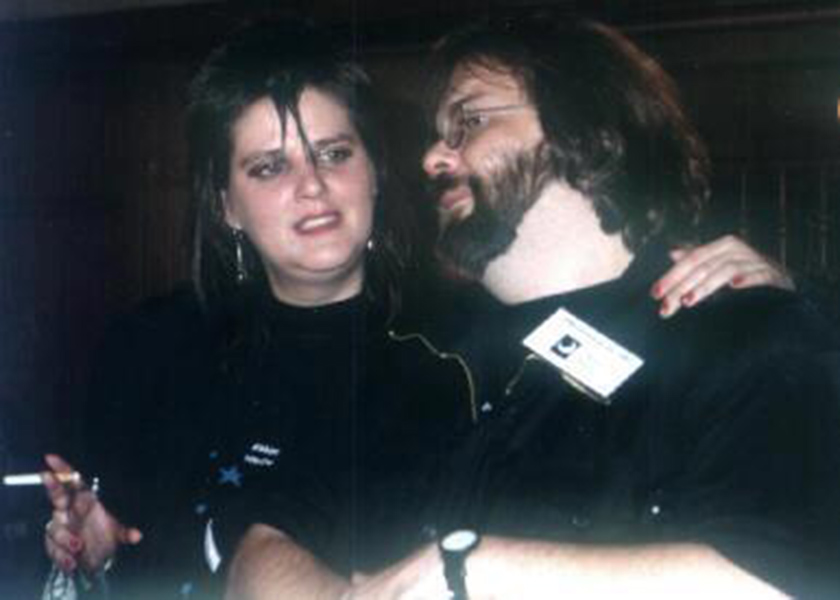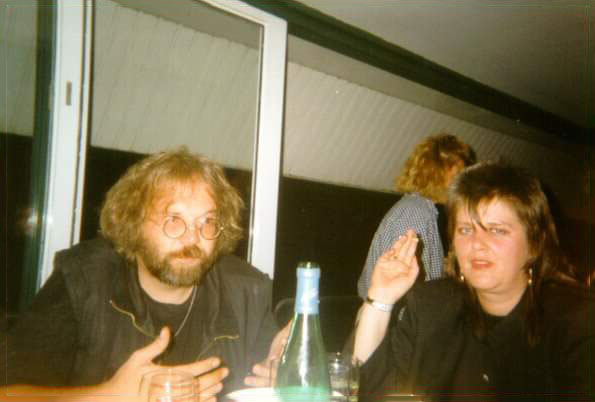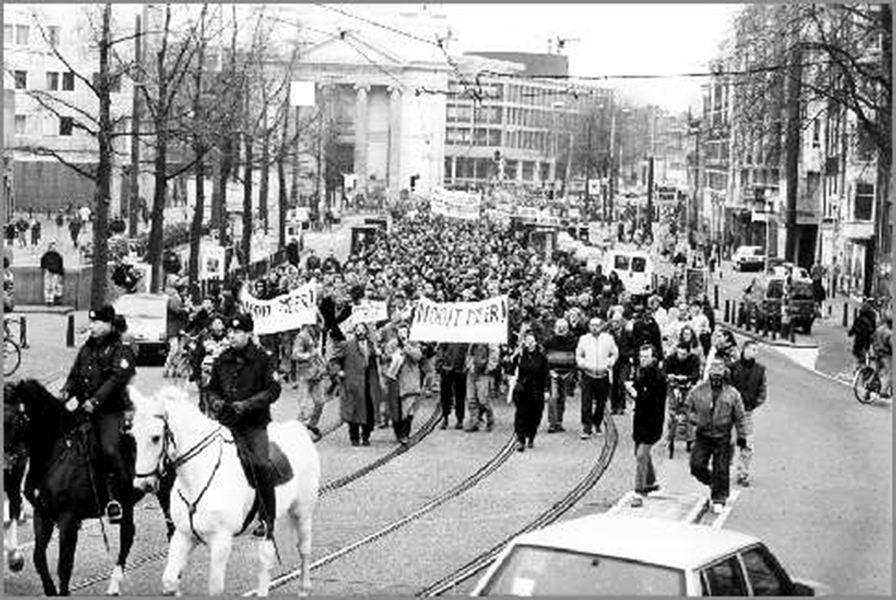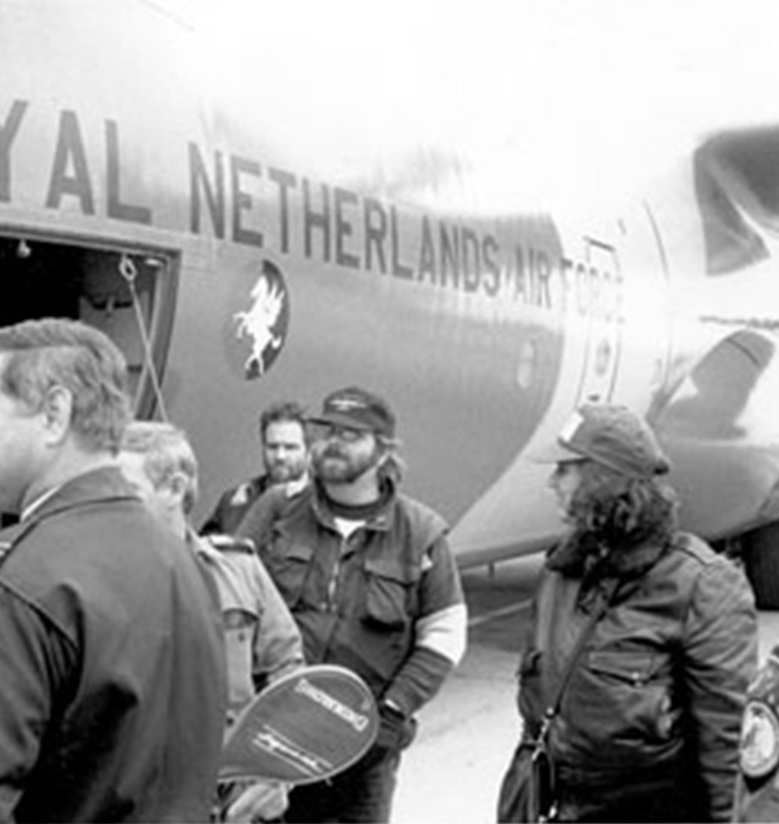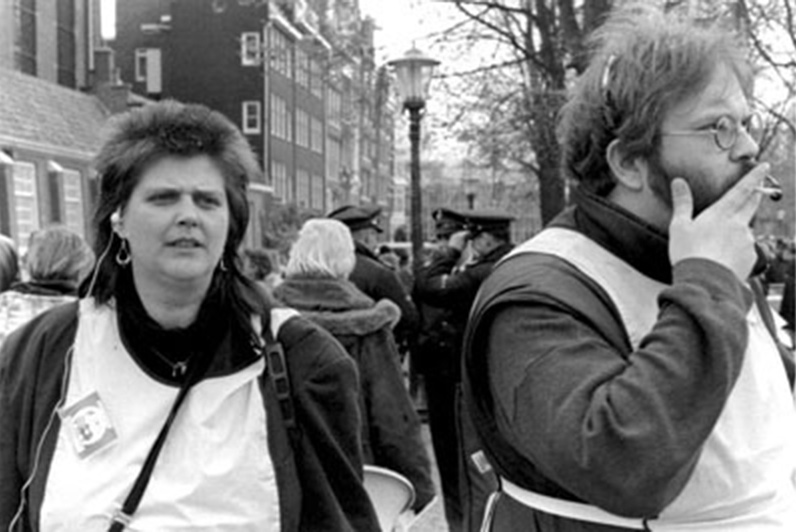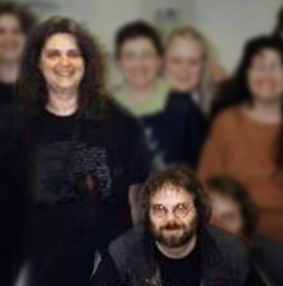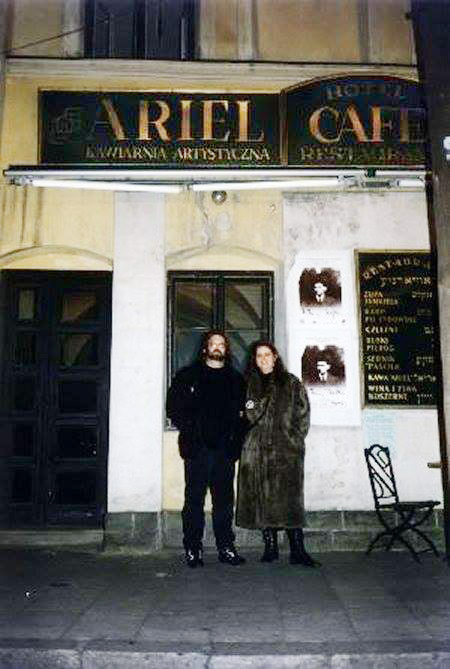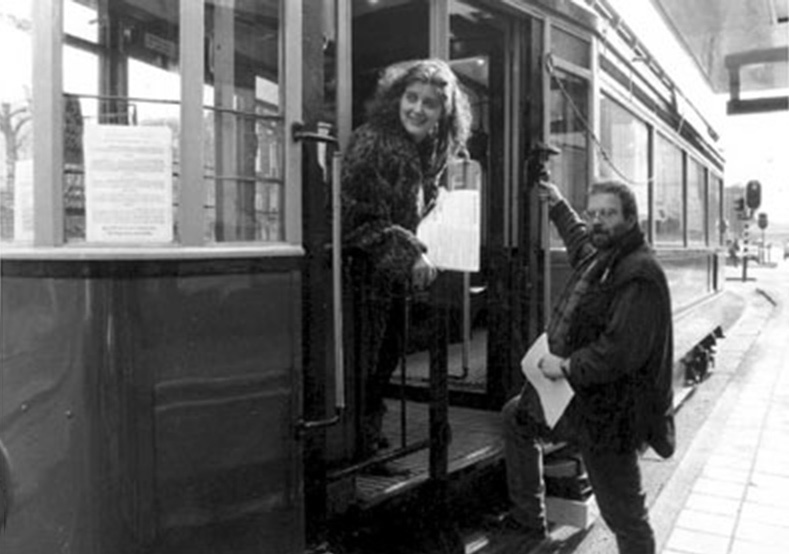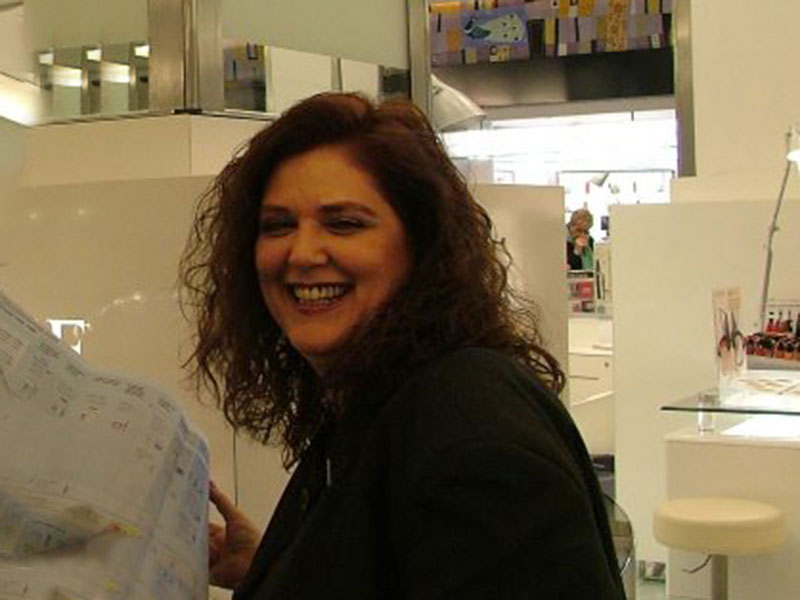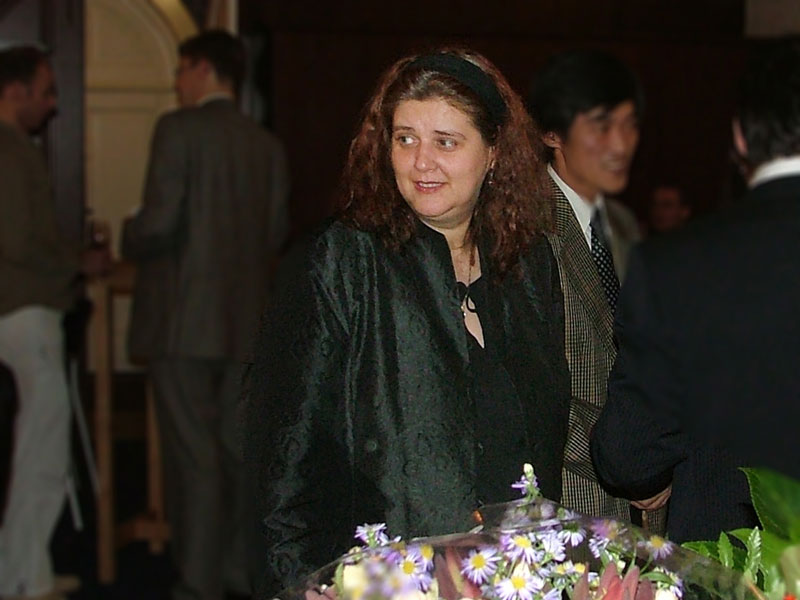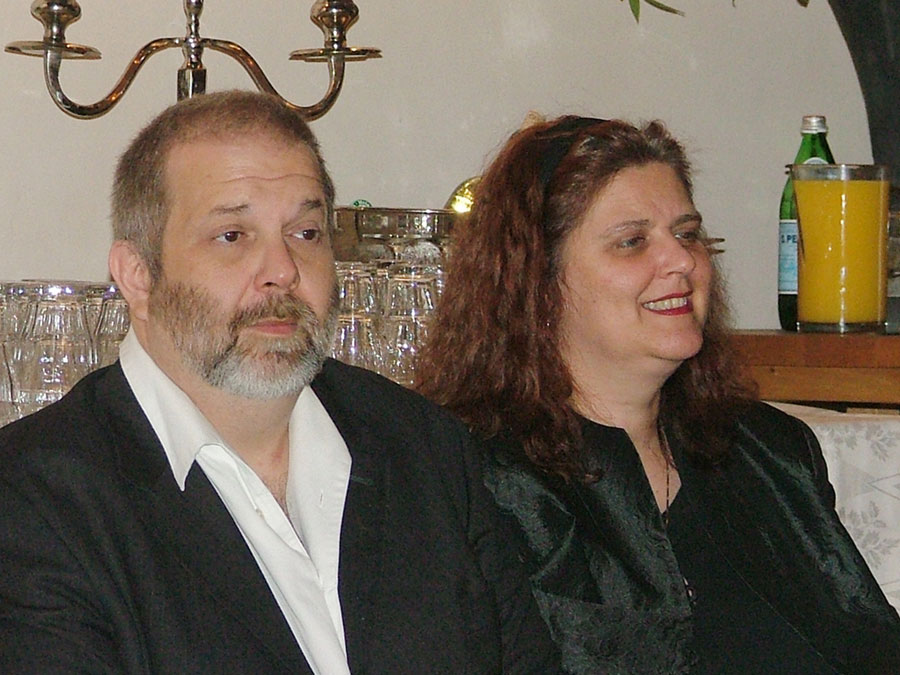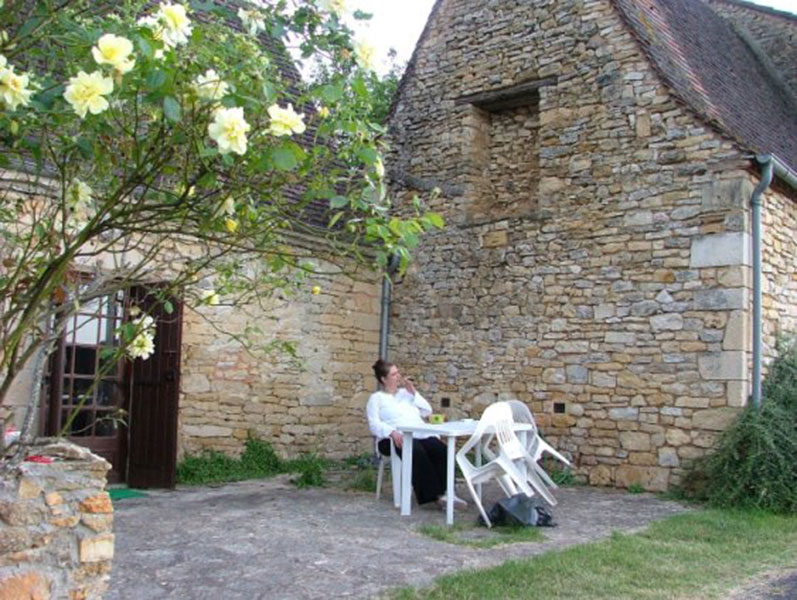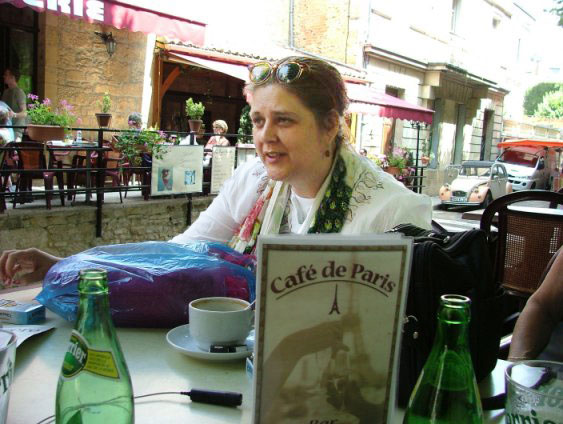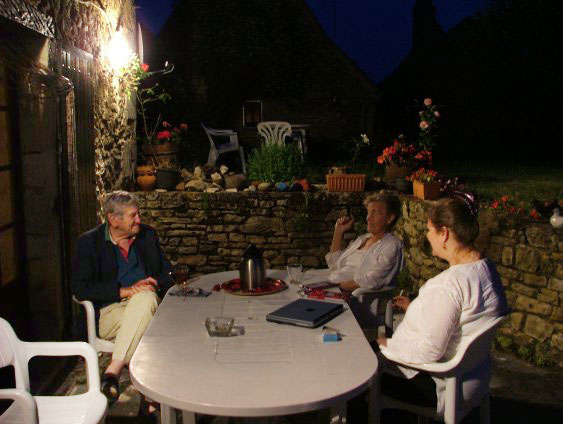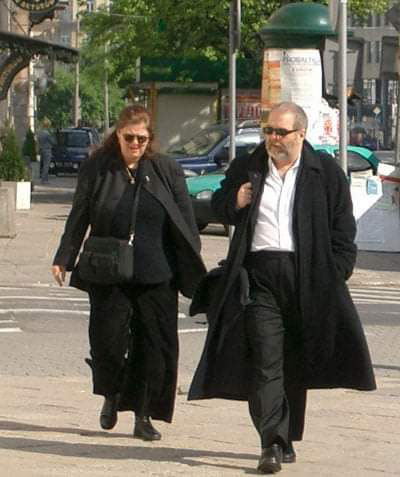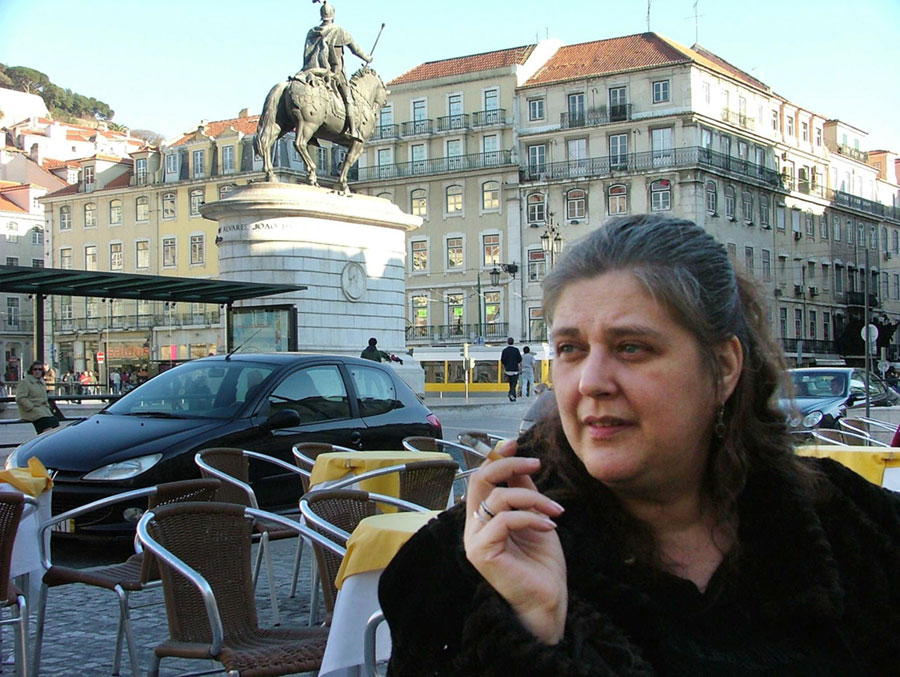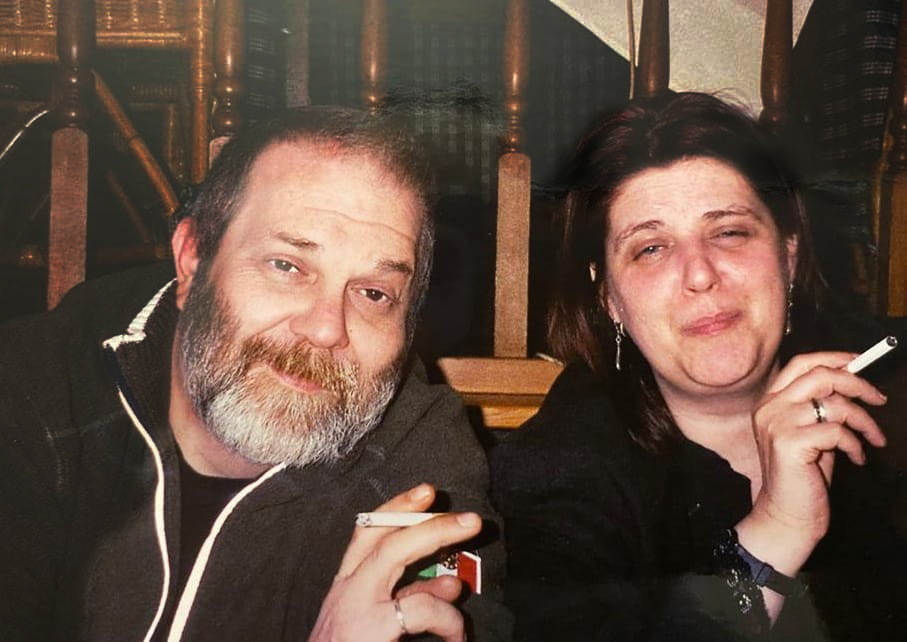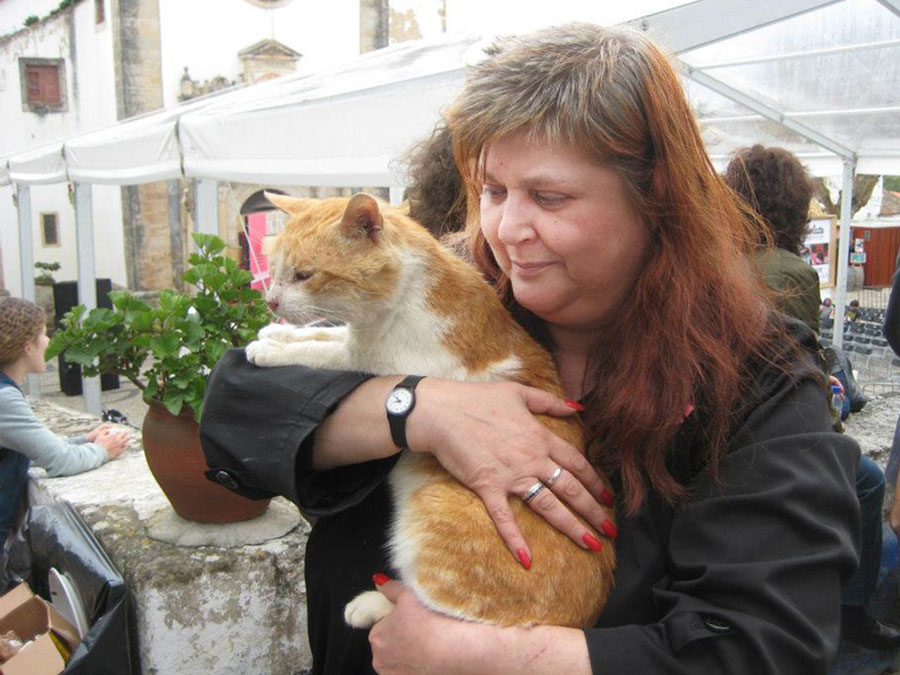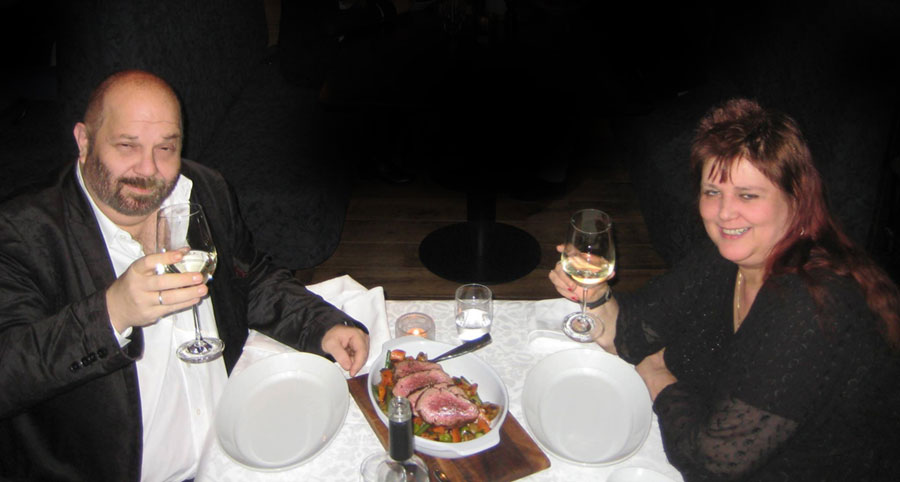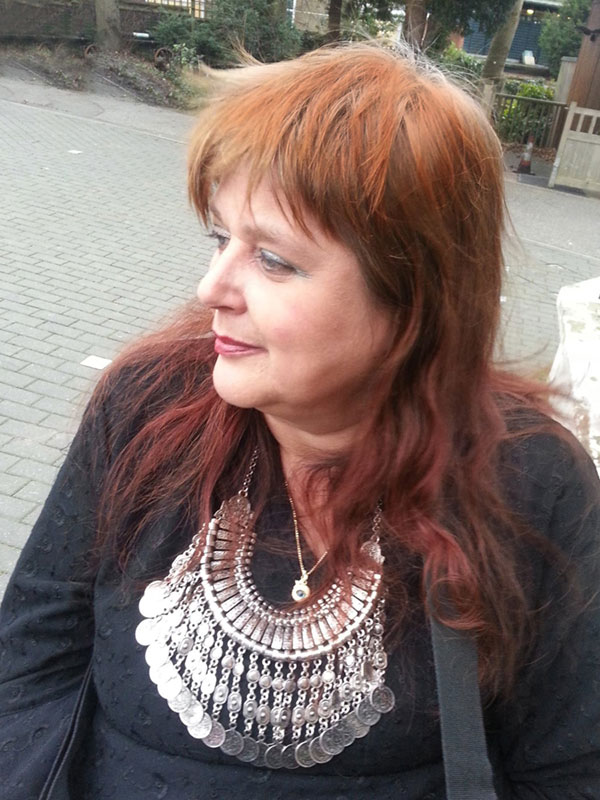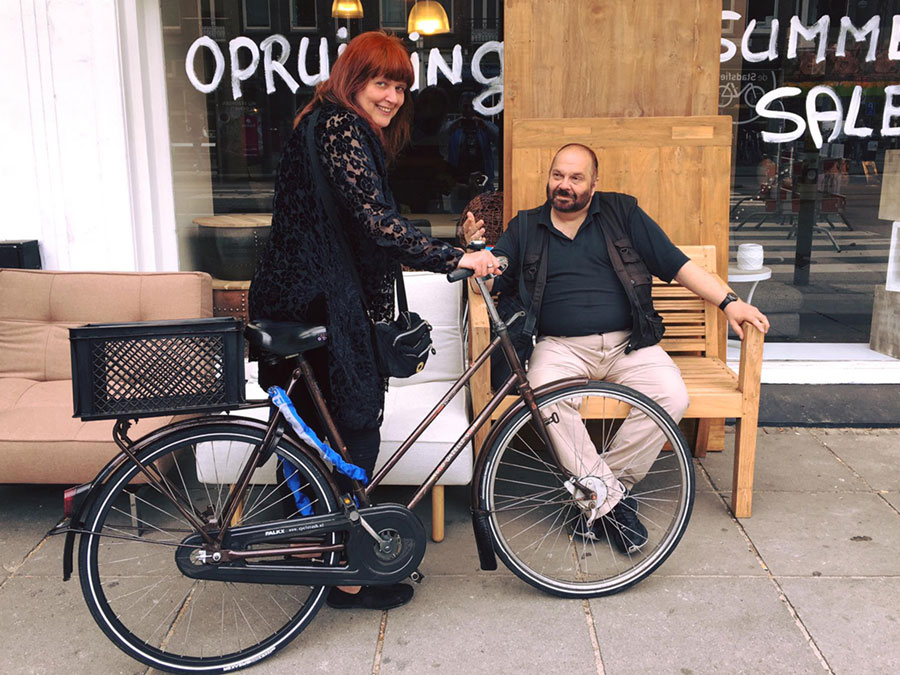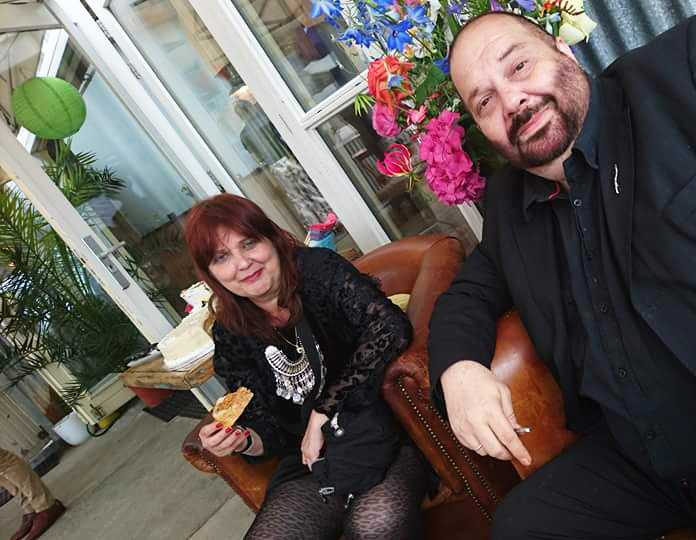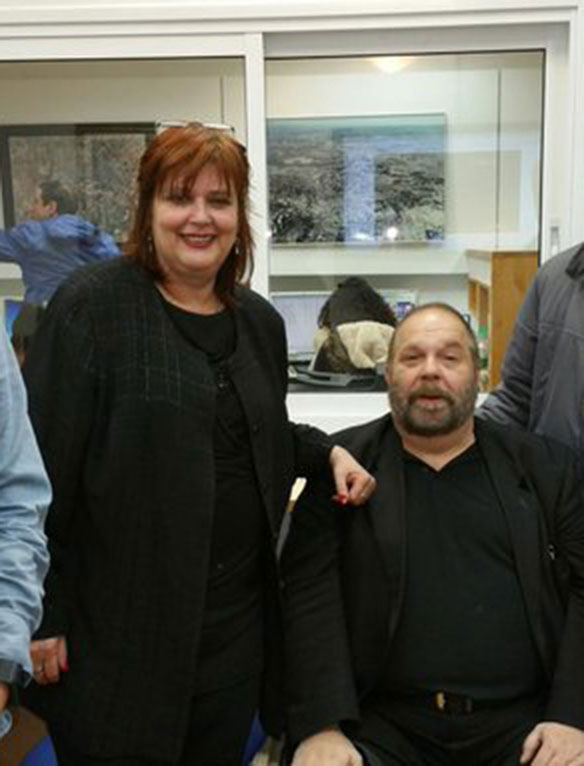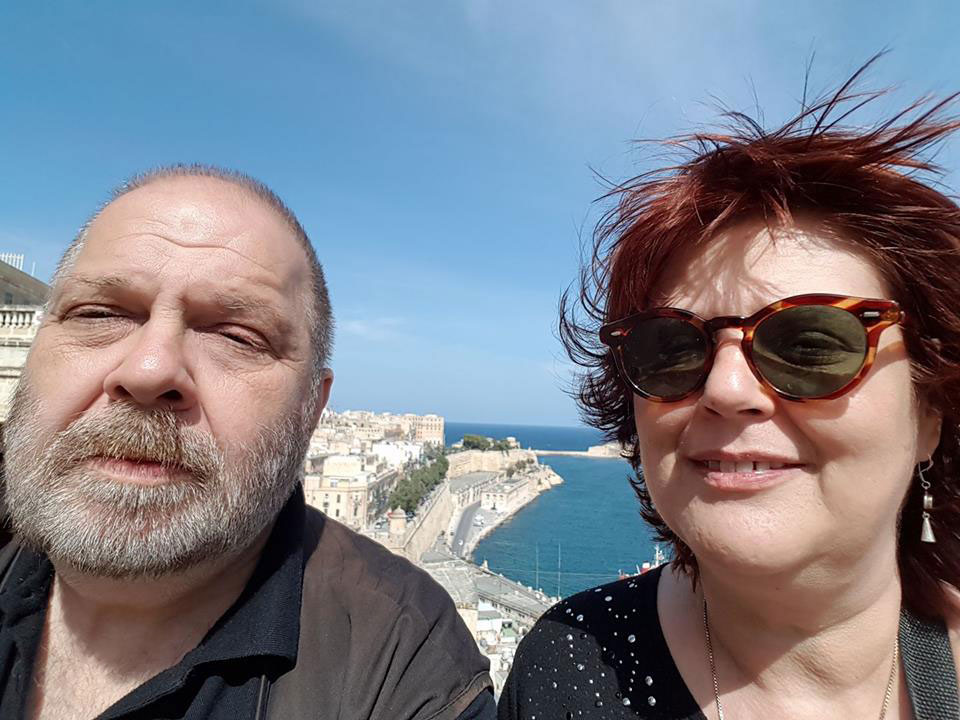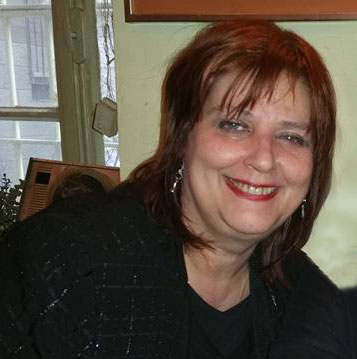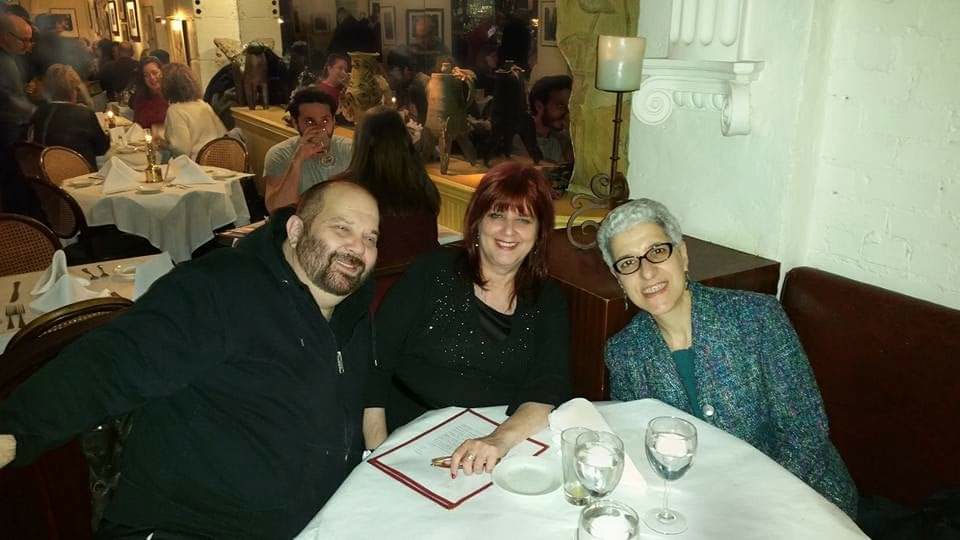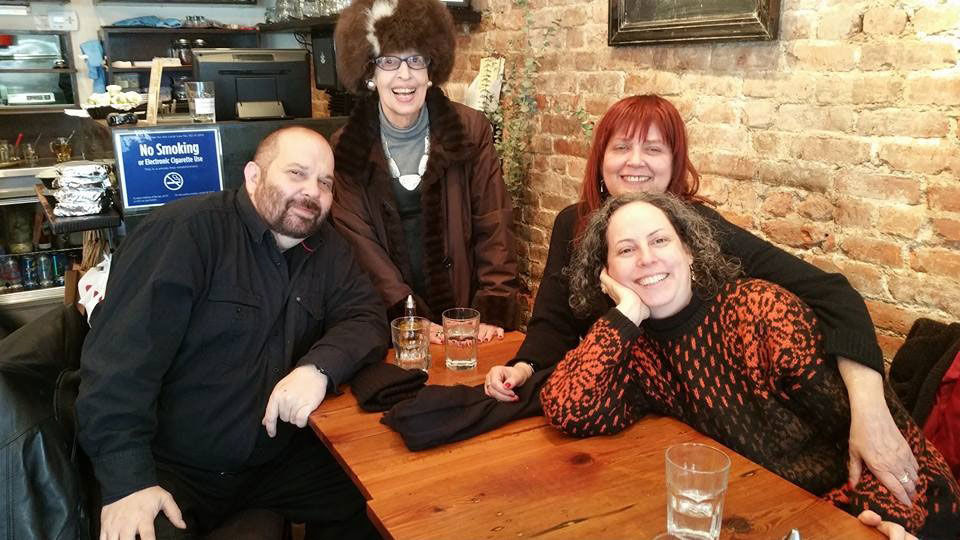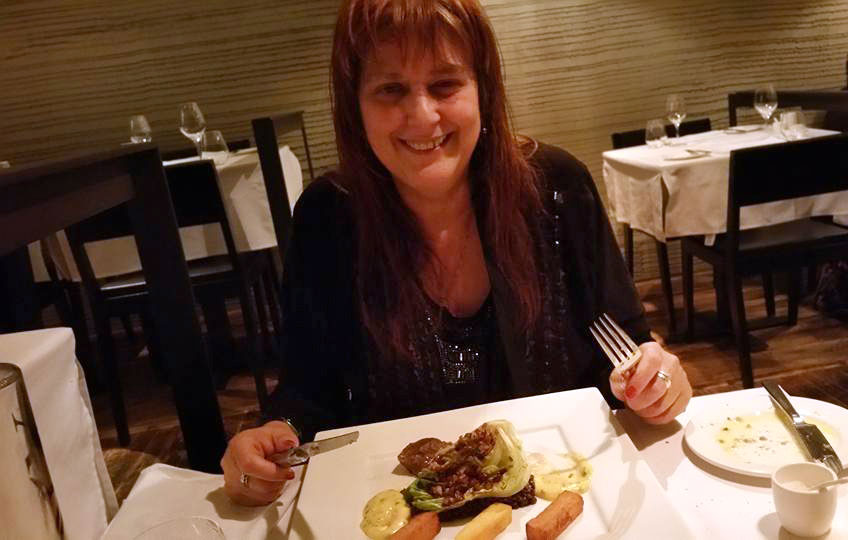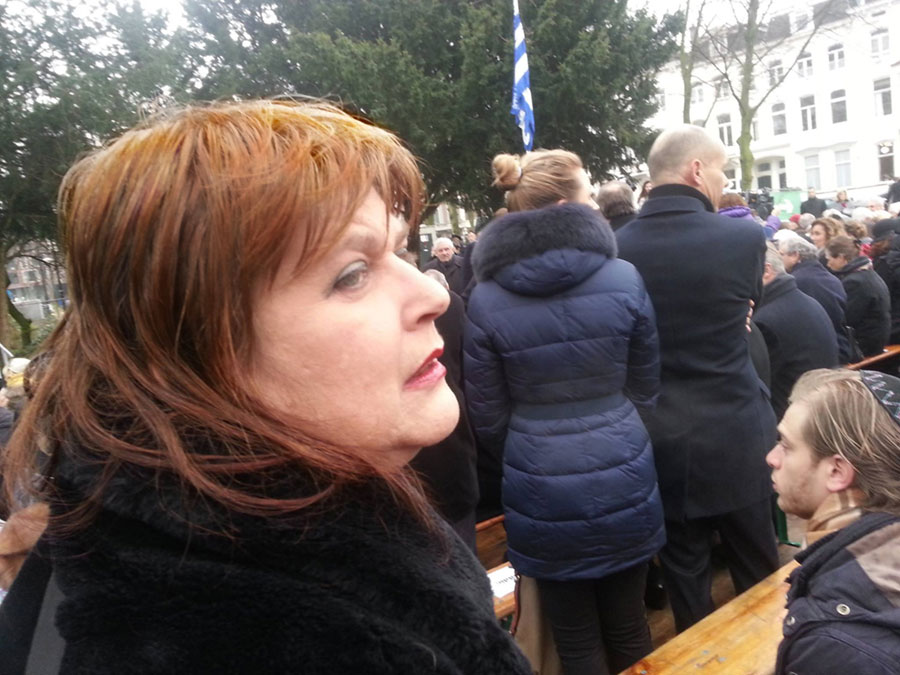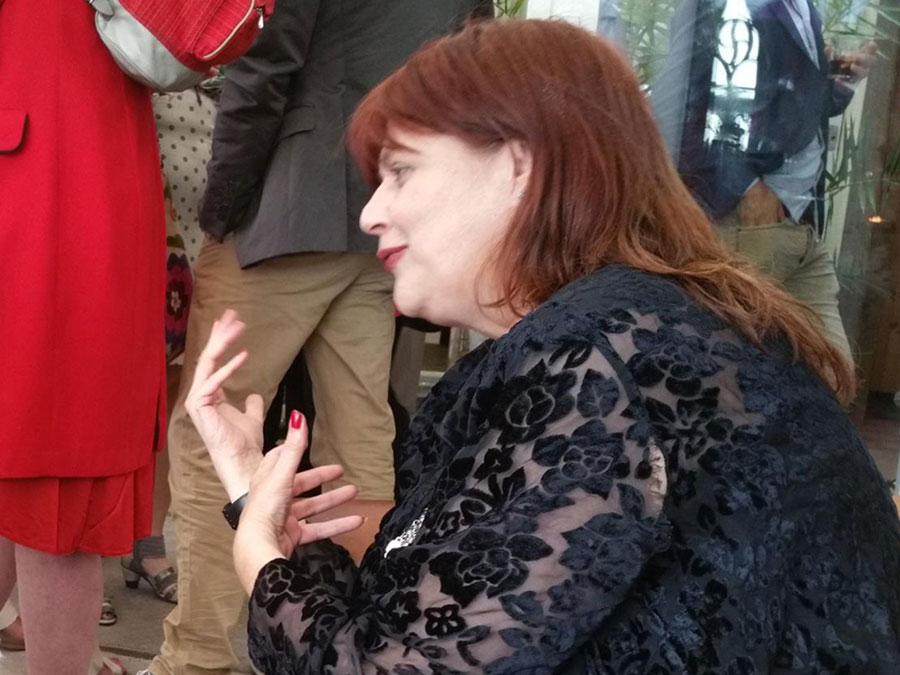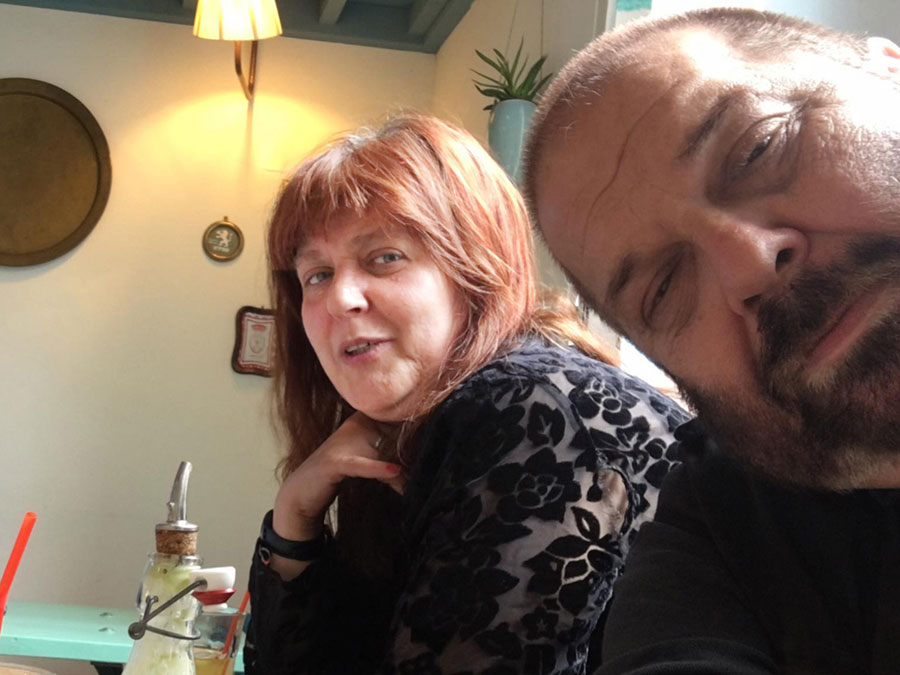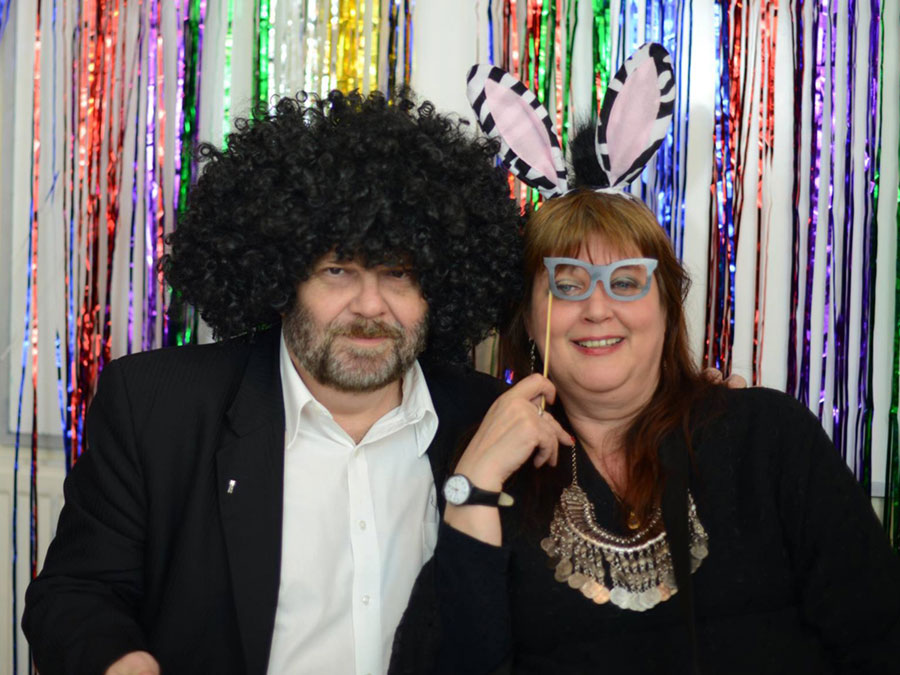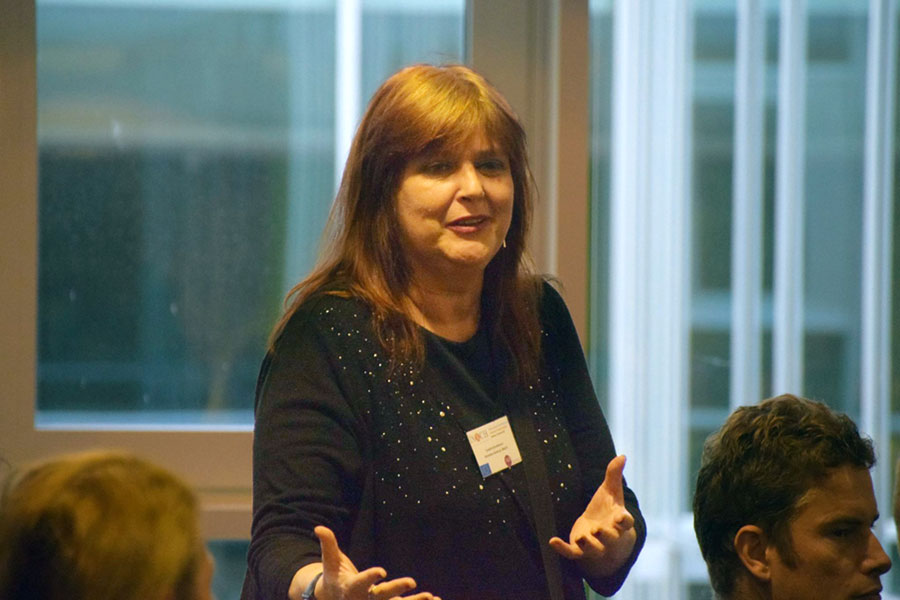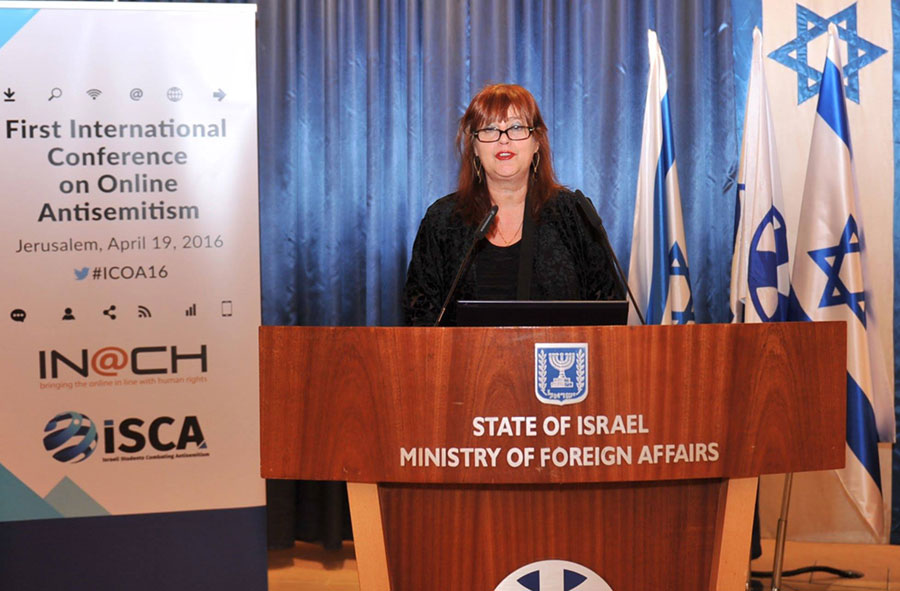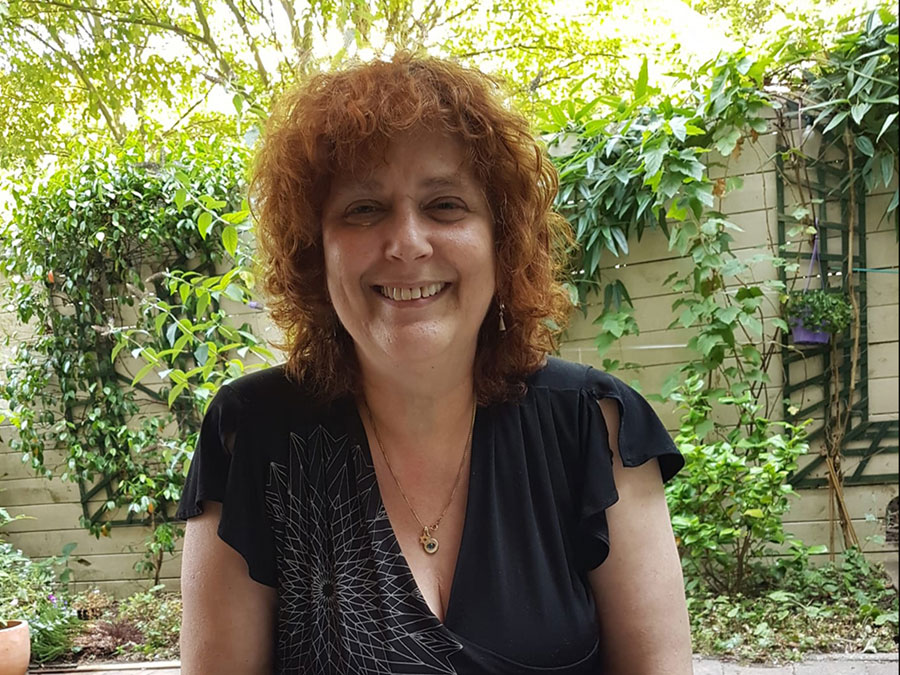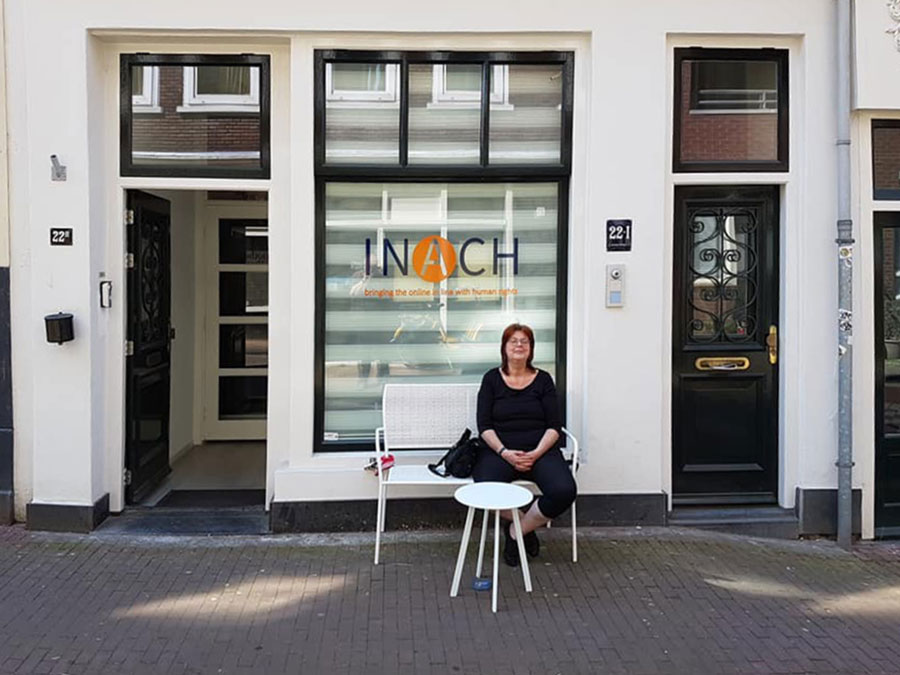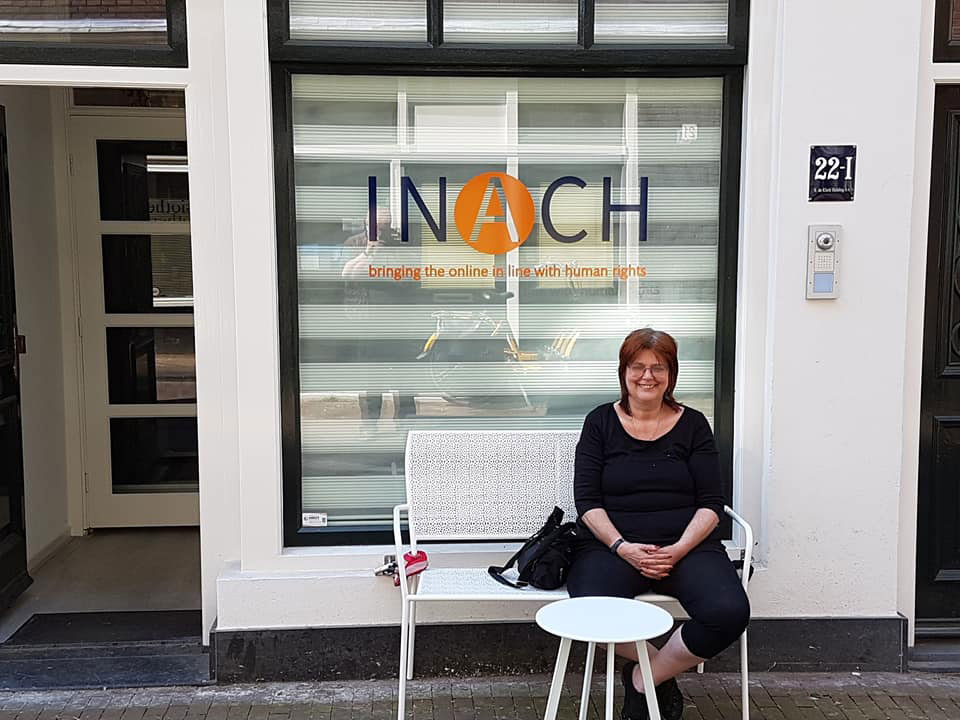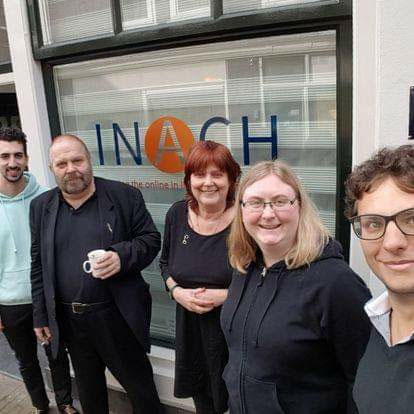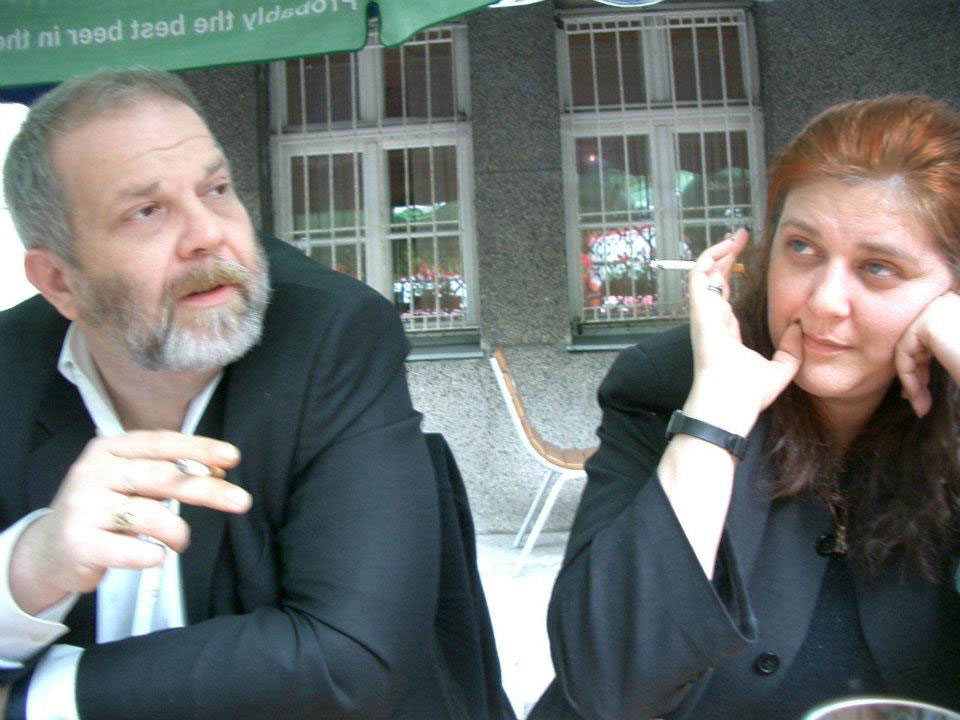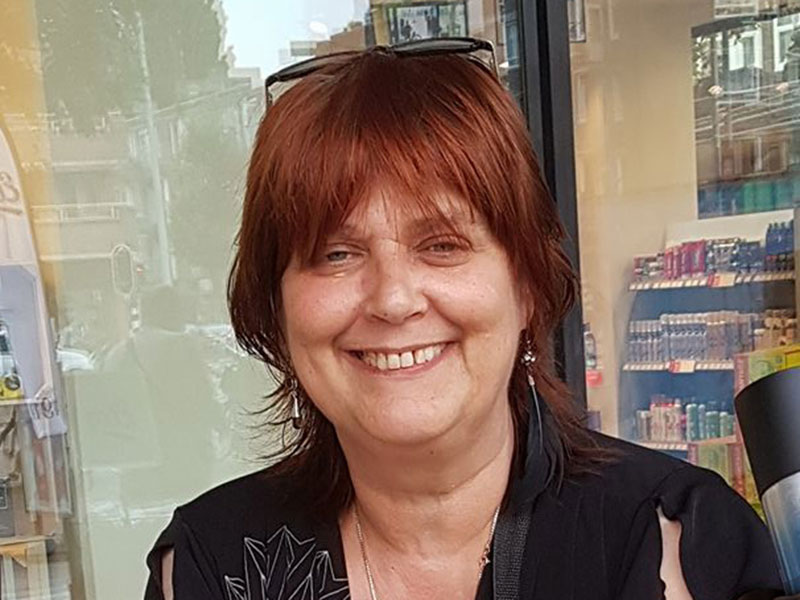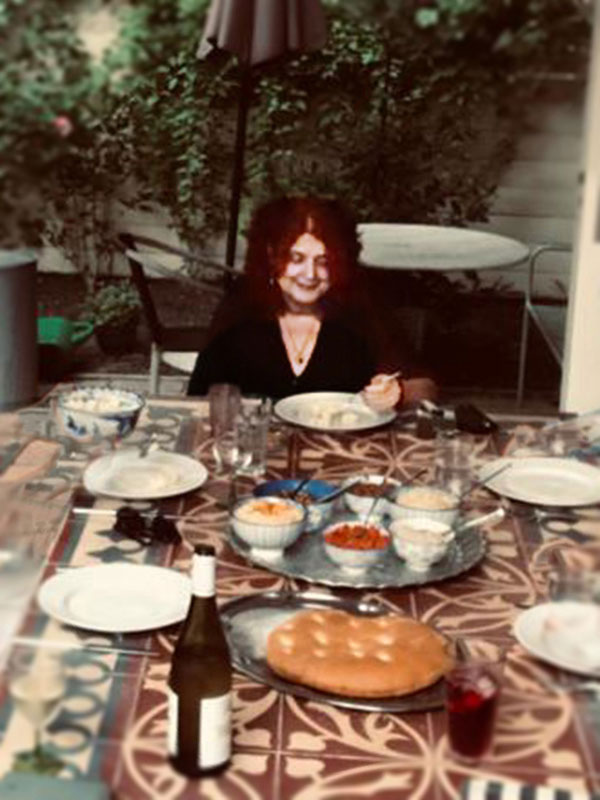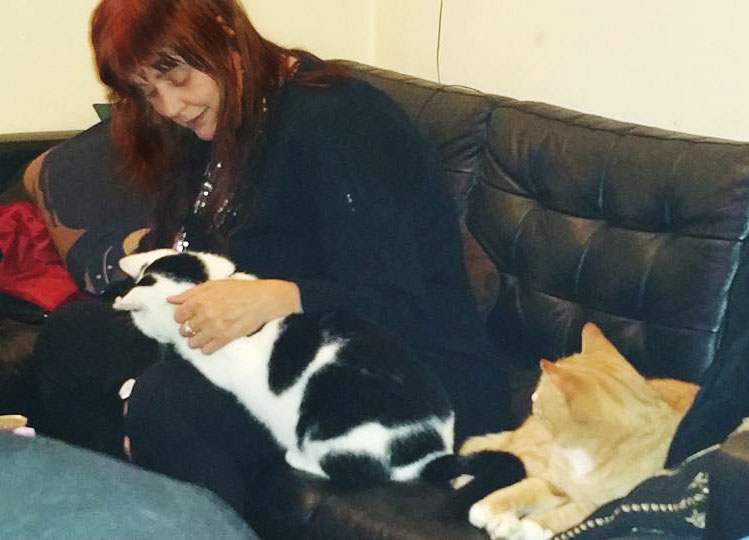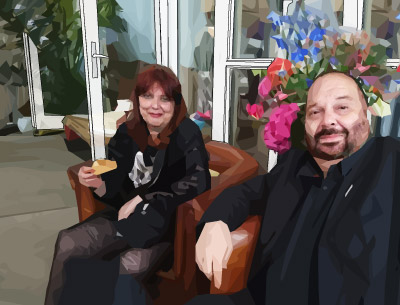Short biography Suzette Bronkhorst
- 1958
- Suzette is born in Heemstede, on october 22.
- childhood
- Suzette was a free spirit in the truest sense of the word, outgoing, honest and outspoken. In a way, she was also quite private. One would get to know Suzette's opinion, rather than her soul stirrings. She was the daughter of actress Henny van den Broek
 and Jaap Bronkhorst. Jaap had survived Auschwitz, as one of the very few members of his family.
and Jaap Bronkhorst. Jaap had survived Auschwitz, as one of the very few members of his family.
- 1964
- A school notebook from 1964 has been preserved, in which Suzette's writing lessons have been recorded. With comments from the teacher and also, comments and drawings from the 6-year-old herself:
- 1968
- On her tenth birthday, Suzette received a poetry album. The first to write in it was her brother Don (☆1947- ✝2000). Friends wrote sweet messages in rhyme in the booklet. Below is also the message from a friend who used a nick name:
- 1970
- Suzette played the role of Marleen Spaargaren - 11 years old, in the TV series De kleine waarheid
 . Suzette was very modest about her role, hardly ever mentioned it.
. Suzette was very modest about her role, hardly ever mentioned it.
We had to look up these newspaper articles ourselves, Suzette had not saved them:
- 1971
- What was Suzette's childhood like? This newspaper-clipping gives a glimpse of the story. Are children of toy suppliers privileged? asks the Telegraaf to toy supplier Jaap Bronkhorst, Suzette's father, in an article about the Sinterklaas celebration. No, not really privileged: “The flow of gifts has always been very limited in this household,” says Jaap, “the toy my children liked the most, was the soapbox on wheels, that I made myself.”
- 1972
- Suzette left school at an early age.
- 1970ies
- Suzette was a staff writer for the first magazine run entirely by young people: Aloha
 . Around 1974, she a became longtime employee of Amsterdam’s Milky Way and the first Dutch female DJ.
. Around 1974, she a became longtime employee of Amsterdam’s Milky Way and the first Dutch female DJ.
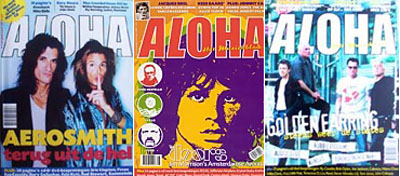
- 1991
- The news of the Hoyerswerda violent racist attacks
 on migrants in Germany, shocked Suzette.
on migrants in Germany, shocked Suzette.
- 1992
- Suzette met Ronald at a City Council meeting of De Groenen.
-
Suzette visited the Nazi-Deathcamps in Poland, together with her father Jaap Bronkhorst, who had survived Auschwitz
 , as one of the very few members of his family.
, as one of the very few members of his family.
- Suzette and Ronald organized the "Never Again Demonstration" in response to violent attacks on asylum seekers in Germany. They founded the Magenta foundation.
-
Suzette came up with the name Magenta, the name of a colour
 in the CMYK-printing model. When SuZ worked for Aloha Magazine, she learned that Magenta-ink
in the CMYK-printing model. When SuZ worked for Aloha Magazine, she learned that Magenta-ink sometimes behaves as a dominant colour in traditional printing.
sometimes behaves as a dominant colour in traditional printing.
- 1994
- Suzette and Ronald joined the Digital City (DDS), a Dutch Freenet that started on January 15, 1994 in the municipality of Amsterdam.
- 1996
- Suzette and Ronald created several project websites like Eye to Eye and AntiRacismewebNL.
- 1997
-
Suzette and Ronald started the first Internet Discrimination Hotline worldwide. The then Minister of Internal Affairs, Hans Dijkstal, opened the Hotline (Meldpunt Discriminatie Internet / MDI) on March 21, 1997 [report] in the De Balie debate center in Amsterdam. The Hotline was funded by the Ministry of Justice.
The MDI investigated reports of (alleged) expressions of discrimination, racism, Islamophobia, anti-Semitism, homophobia and tried to find out who was responsible. If such an internet statement was punishable under the Dutch Criminal Code, the MDI informed the provider, and if the statement was not removed, the reporter or the MDI reported it to the Public Prosecution Service. However, this is no different from what applies to any other Dutch citizen, which means that the actual power of the MDI was also limited. The MDI, on the other hand, possessed legal knowledge and experience, and thus offered citizens and organizations assistance in removing criminal material.
- 2000
- Suzette lost her older brother, Donald E. Jongejans, born July 11, 1947, who died on June 26, 2000, at the age of 52. Don was the owner of a famous eyeglass frame shop in the city center of Amsterdam, where he worked at the Noorderkerkstraat 18:
- 2005
- Suzette's father Jaap Bronkhorst finally published his memoirs, an account of his war experiences as a surviving shoah victim: Zestig jaar later
 . Suzette had typed out her father's audio-tapes years before, but Jaap had been in doubt for a long time whether his history would add anything to the already existing books.
. Suzette had typed out her father's audio-tapes years before, but Jaap had been in doubt for a long time whether his history would add anything to the already existing books.

